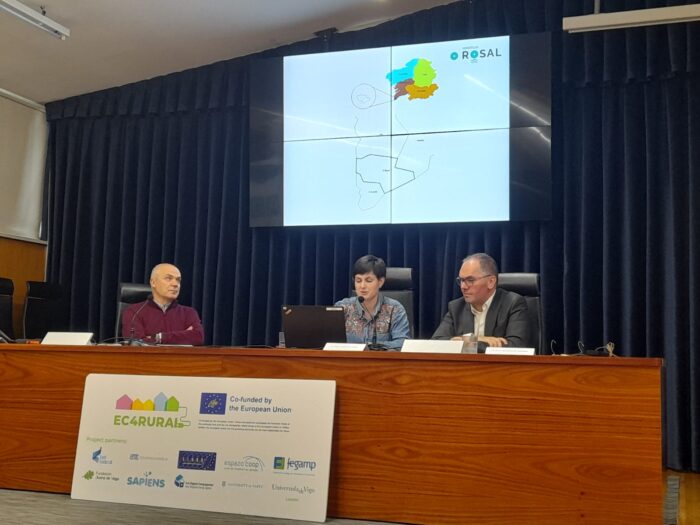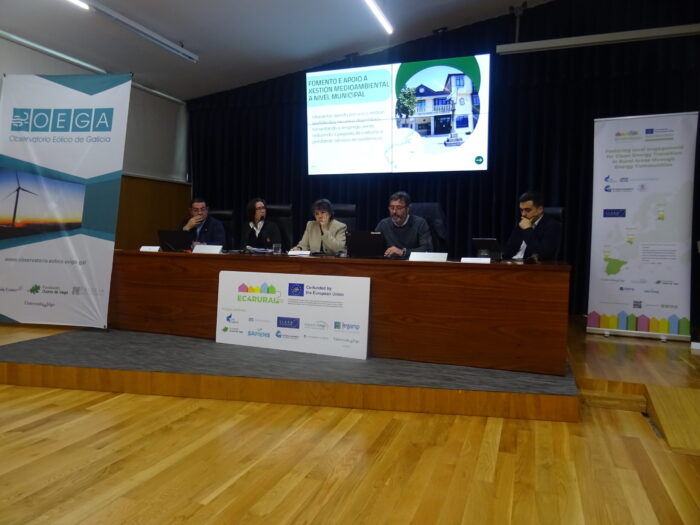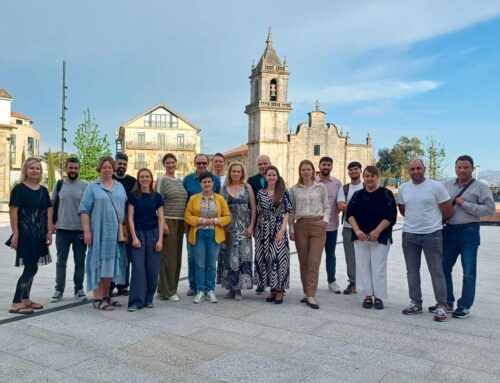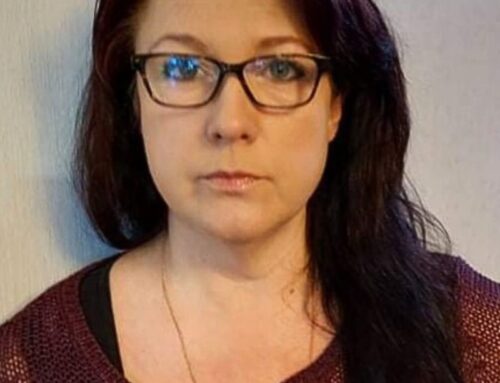The second conference on Energy Communities and Community Initiatives: The Galician Ecosystem was held yesterday, providing an enriching platform to highlight the social, economic, and political efforts underway in Galicia to drive the local energy transition. Organized by the Galician Wind Observatory (OEGA), the event received support from the EC4RURAL project, the Interuniversity Research Center for Atlantic Cultural Landscapes (CISPAC), and the University of Vigo. Xavier Simón, director of OEGA and EC4RURAL coordinator, served as the presenter and moderator of the event.
Attendees had the opportunity to learn firsthand about projects led by local entities, municipalities, provincial governments, the regional government, mountain communities, and other organizations. These initiatives, originating from diverse sectors, aim to advance a citizen-driven energy transition across Galicia.
Four municipalities participating in EC4RURAL’s Galicia Pilot shared their experiences: O Rosal, Vilasantar, Moeche, and Muíños.
Ánxela Fernández Callís, the mayor of O Rosal, announced the establishment of the region’s first Office for Community Transformation (OTC). This groundbreaking initiative features a highly participatory process and has recently designated the management of the service. Its primary objective is to support the creation of local energy communities by offering technical assistance and guidance to residents, while promoting projects that reduce energy consumption, lower electricity costs, and encourage the use of renewable energy. “O Rosal is an ideal location for implementing energy communities due to its strong tradition of social collaboration and association. This office represents another step in our commitment to a more sustainable future, equipping residents and small businesses with practical tools to play a leading role in the energy transition,” the mayor explained.

Beatriz Bascoy, mayor of Moeche, began by recalling that their energy community initiative arose from social opposition to a wind farm. From the outset, she emphasized, “The local government is pulling the cart, but I want to stress that it’s the residents who are forming the energy community.” Currently, 28 units have expressed interest, but only 18 fall within the 2-kilometer radius eligible for CER participation. She expressed regret that some excluded parties include agricultural operations.
Fernando Pérez Fernández, the mayor of Vilasantar, detailed the progress in establishing the Vilasantar Enerxía Rural Energy Community, which is currently drafting its technical project. The photovoltaic panels will be installed on the roof of the municipal sports center, supplying energy to 25% of the households in the municipality.

In October, Plácido Álvarez, the mayor of Muíños, was presented with EC4RURAL’s Energy Transition Municipality plaque, complementing its Green Flag award for environmental stewardship, landscape preservation, and reductions in CO2 emissions and energy consumption, conferred by the Instituto de Estudos do Territorio. At the conference, Sergio Rodríguez, representing Galeosol, outlined the engineering company’s role in installing municipal photovoltaic systems, funded with support from the IDAE. Muíños’ energy community is known as COMELSA (Limia-Salas Energy Community).
Additionally, the secretary-interventor of Xermade (Lugo) shared the municipality’s experience in the “rapid” formation of its local energy community. “A year ago, I knew nothing about this topic and was sitting in the audience learning. Today, Xermade’s energy community is established,” she noted, celebrating the growing number of successful energy community initiatives across Galicia.
EC4RURAL Training Courses in December
On behalf of EC4RURAL, Almudena Fiunte presented the project and highlighted the key milestones reached during its first year in the Galicia Pilot. From the initial Inspiration Phase, which established 13 driving groups followed by 7 core groups, to the subsequent Energy Community Activation Phase, significant progress has been made.
In addition to the diverse starting points across the 22 municipalities participating in EC4RURAL, Fiunte highlighted several challenges encountered that hinder the implementation of Energy Communities. These include a lack of administrative efficiency, limited access to funding and the capacity to apply for public grants, as well as low levels of social participation and weak municipal leadership.
To tackle these challenges, the EC4RURAL team is designing six training courses aimed at the successful implementation of local energy communities, which will be available starting in December.






